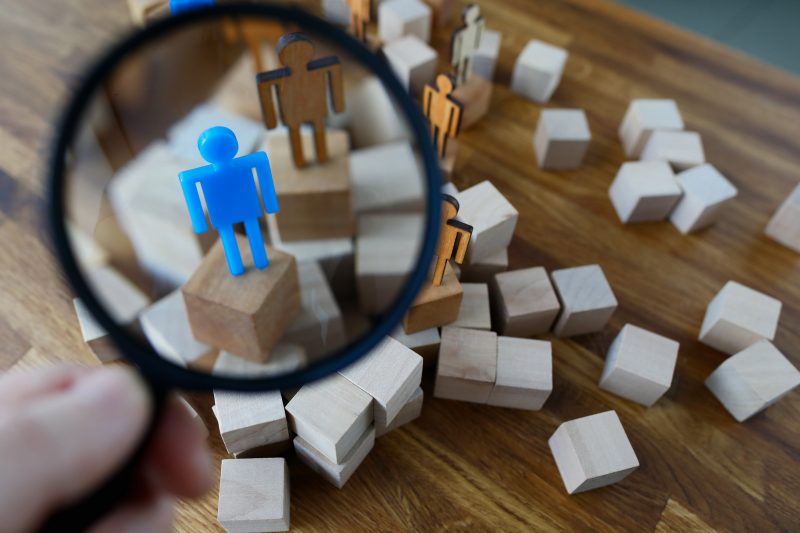To Care Is to Share (Knowledge)

H_Ko/Shutterstock
This week, I wanted to visit the reason I started writing this column. However, to describe that rationale, I need to revisit the moments soon after I received my diagnosis.
I was diagnosed with limb-girdle muscular dystrophy (LGMD) in the late 2000s. I remember my primary physician calling me to deliver the news. He said I would be getting a call from a neurologist to set up an appointment in which he would “explain” the diagnosis to me. It is important to note that I was only a couple of months away from getting married.
As someone who truly believes that knowledge is power, I began searching for answers immediately after the call. What was this disease, and how would it affect my life? Contrary to my doctor’s belief, I was relieved, as many of the signs and symptoms I had displayed and reported since childhood finally made sense. I truly felt that the puzzle of my being was coming together.
My fiancée and a relative of mine accompanied me to meet with the neurologist. I felt fortunate to have a physician who at the time was thought to be one of the best in the state. He was blunt, which I appreciated, but my fiancée thought otherwise. Luckily, we both had done and shared our research beforehand, so we were prepared.
The neurologist said limb-girdle muscular dystrophy wouldn’t affect my mental capabilities, but my physical abilities would be affected over time. The neurologist also recommended I leave my doctoral program in physical therapy, as it would be too taxing on my body, and instead go into medicine.
I will say he was positively surprised by the amount of knowledge my fiancée and I had regarding the disease process. He then asked if we had any questions. My fiancée and I said we didn’t have any further concerns.
After arriving home and explaining the diagnosis to my family, two events took place that ultimately altered my viewpoints about people and life.
The first event was a discussion between my fiancée and me, in which we had a heart-to-heart conversation about the future. This conversation included one of the first arguments we’d had. Admittedly, it was my fault because I didn’t want to be a burden on anyone’s future. I am very fortunate to have her in my corner, and we have now been married for 13 years.
Additionally, the first week after my diagnosis, I had a meeting with my close-knit extended family. This second event was very different from the first. It ended with the elders in my family suggesting I not tell the greater community about my diagnosis because it could bring “shame” to the family. While I was initially confused by this statement, I abided by the rule for a while.
While I was in physical therapy school, one of my teachers decided to use me for a demonstration. She asked me to resist her strength to the best of my abilities, and when I did, she thought I was holding back. However, after disclosing my diagnosis to her, she said she could have severely hurt me.
As simple as they may be, these words are the reason I choose to write this column. I realized that while knowledge is indeed power, a lack of knowledge is weakness. I vowed to share my knowledge to educate as many people as I could. No one knows everything, but everyone knows something about some thing.
Sharing knowledge benefits both the receiver and the recipients of the information. The more one shares, the more they believe and know. If knowledge is power, a lack of knowledge is not a lack of power, but ignorance. Therefore, I desire to learn and help as many people as possible through whatever means are available to me.
Muscular dystrophy is not a stigma. It is a part of who I am. I could take this in one of two ways. If LGMD is an enemy, not having knowledge about it will only help it win. Secondly, if it is a part of me, then I should know what that part does. Regardless, knowledge is important. The more you know, the more you realize the more you do not know.
I will end with a quote from one of my therapy students, who said, “Dr. Rizvi, you may be losing your muscles in your legs, but it appears they have traveled to your brain.” The best way to care about someone or something is to share knowledge with or about it.
***
Note: Muscular Dystrophy News is strictly a news and information website about the disease. It does not provide medical advice, diagnosis or treatment. This content is not intended to be a substitute for professional medical advice, diagnosis, or treatment. Always seek the advice of your physician or another qualified health provider with any questions you may have regarding a medical condition. Never disregard professional medical advice or delay in seeking it because of something you have read on this website. The opinions expressed in this column are not those of Muscular Dystrophy News or its parent company, Bionews, and are intended to spark discussion about issues pertaining to muscular dystrophy.







Syed Asif Ali
Nice
David
The quote from your student was a great way to end your article. Thank you!